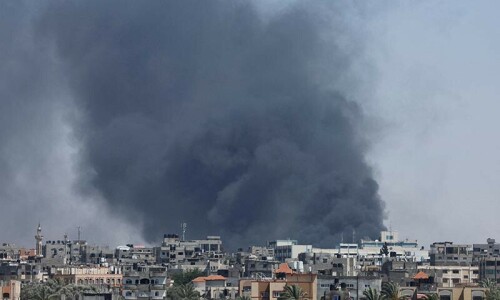AS the Covid-19 pandemic has taught us, health emergencies can have a devastating economic and social impact, along with other negative effects, on human lives and well-being, which is why states must always be on the alert to keep infectious diseases at bay. According to recent reports, at least two cases of monkeypox have been reported in the country; the patients were diagnosed after flying in from Saudi Arabia. While there is no need to panic, the detection of the cases should prompt the health authorities to step up surveillance of incoming passengers at airports as well as border crossings, while contact tracing needs to be proactively carried out. Though monkeypox is not deadly in many cases, it can make people very sick, and as the WHO points out, children, pregnant women and people with weak immune systems “are at risk from complications” related to the disease. The infection is contagious, and can spread through personal contact and infected animals, as well as by sharing contaminated materials. Last year, outbreaks were reported, primarily in Europe and the Americas, causing thousands of infections and over 100 deaths.
The authorities should be concentrating on contact tracing and isolation at this point to prevent further spread of the ailment. The fairly successful experience of dealing with the Covid outbreak should be utilised in the case of monkeypox. But, in a related development, the state is considering shutting down an Rs88bn health programme designed to deal with emergencies, epidemics and natural calamities. The Covid-19 response programme is facing the axe apparently due to “poor implementation” by the provinces. While the economic situation may warrant cost-cutting, public health programmes — particularly those that are supposed to deal with epidemics and natural disasters — should be exempted, especially if funds have already been earmarked. If there are capacity issues, they can be addressed through training, the implementation of best practices, oversight etc. Shutting down an entire health programme is not the answer. Globalisation and the emergence of new strains of infectious diseases means that the next epidemic may not be too far away. The global MERS, SARS, and Covid health crises all support this position. Pakistan, instead of cutting back spending on its already weak health infrastructure, must strengthen it and prepare to deal with emerging and established threats to public health.
Published in Dawn, April 27th, 2023










































Dear visitor, the comments section is undergoing an overhaul and will return soon.